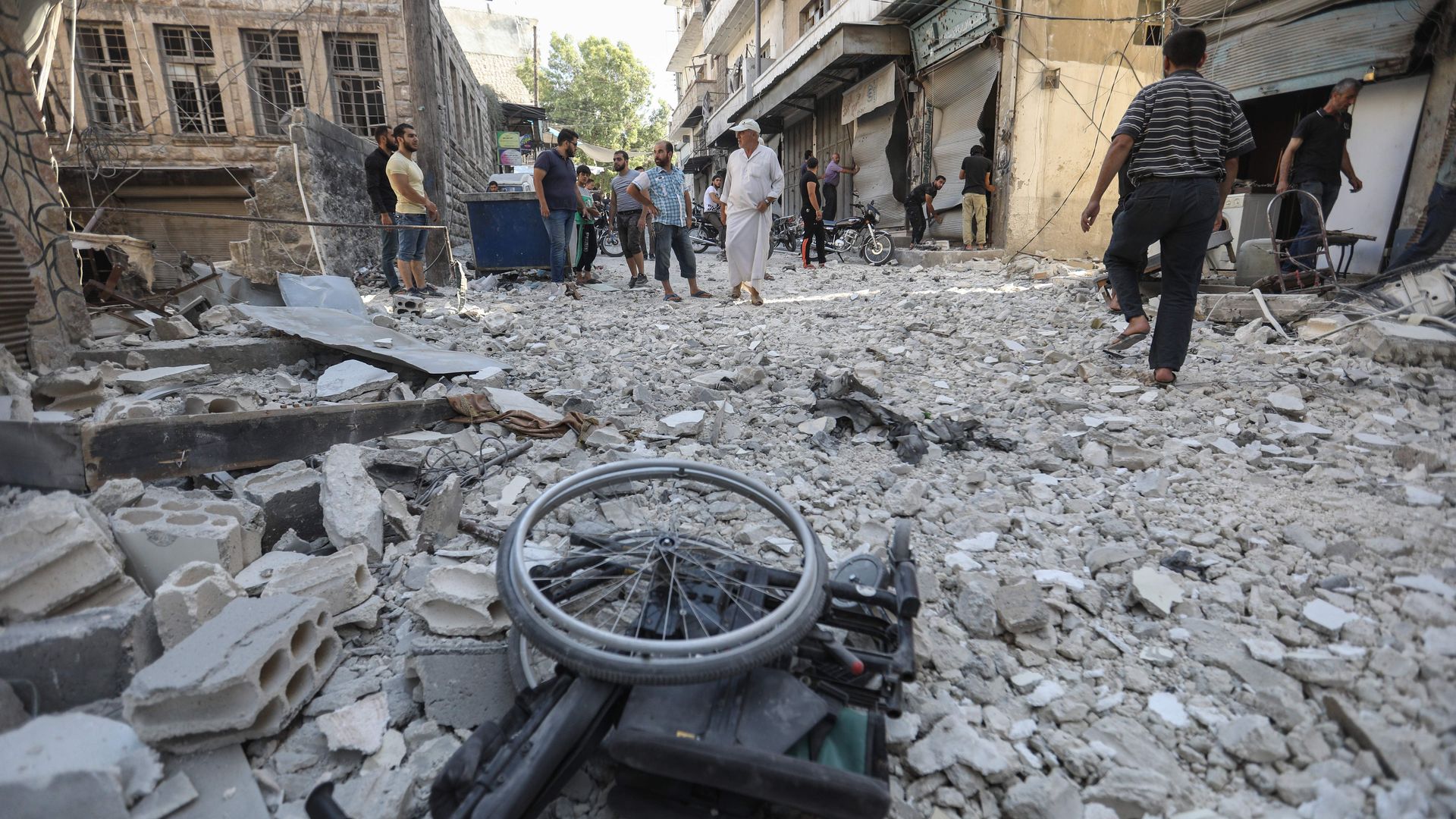Jul 25, 2019 - World
Expert VoicesIdlib airstrikes by Russia and Assad test U.S. resolve in Syria
Add Axios as your preferred source to
see more of our stories on Google.

Buildings destroyed by a reported regime airstrike on the town of Ariha, in the south of Syria's Idlib province, on July 24. Photo: Omar Haj Kadour/AFP/Getty Images
